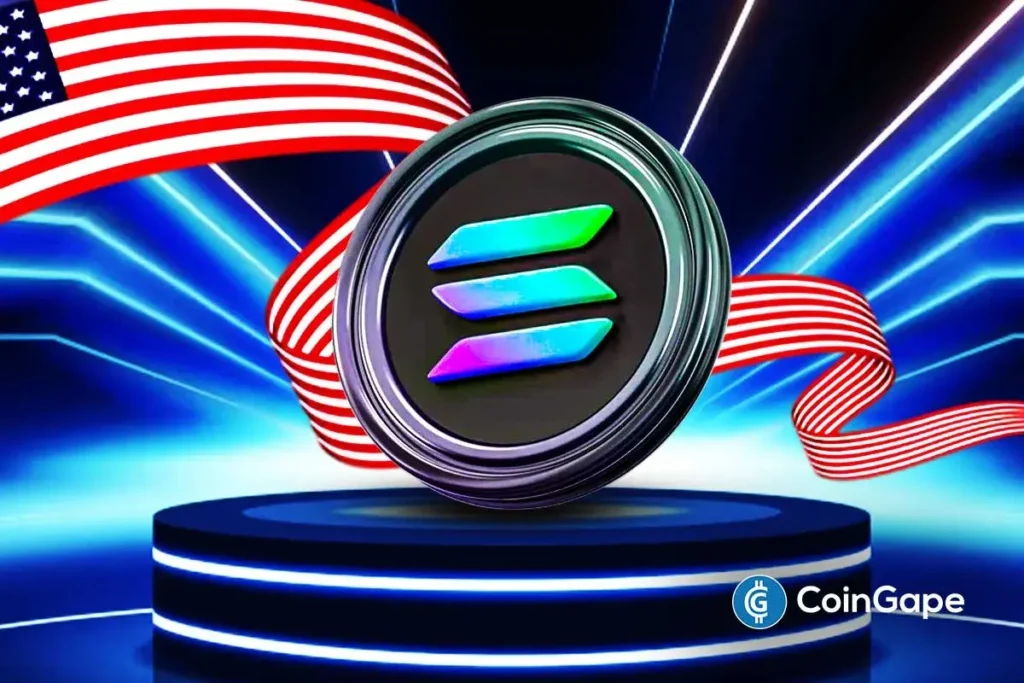Advancements in Solana ETF Proposals: A Positive Outlook for Institutional Investors
Recent developments in the realm of Exchange-Traded Funds (ETFs) are making waves in the cryptocurrency sector, particularly concerning Solana. Notably, several firms—including Canary Capital, Franklin Templeton, and VanEck—have actively resubmitted S-1 filings to the U.S. Securities and Exchange Commission (SEC). These resubmissions signal a strong interest in Solana-based ETFs and indicate that these institutions are engaged in continuous dialogues with regulators. As markets evolve, the potential approval of Solana ETFs could open the floodgates for institutional investment in this emerging blockchain technology.
Key Changes in the New Solana ETF Filings
The updated filings for Solana ETFs come with significant revisions that aim to enhance their operational framework and security. Among the most notable updates is the decision to designate Marinade Finance as the sole provider for staking services associated with the ETF. According to the new amendments, a substantial portion of the ETF’s Solana assets will be allocated to Marinade’s platform for a minimum duration of two years. This long-term commitment not only aims to garner staking rewards—reinvented post-fees to boost the trust’s net asset value—but also introduces Marinade’s instant unbonding feature. This feature allows for liquidity during redemptions, alleviating concerns around waiting for Solana’s network cycles.
Enhanced Custody and Transparency Framework
To bolster security and transparency, the updated filing expands the custody framework governing how Solana holdings will be divided. It meticulously outlines the distribution of assets between hot and cold wallets, ensuring that the custodian retains exclusive control over private keys. Notably, investors will not manage the tokens directly, which underscores an essential risk factor—the inherent custody risks involved. To mitigate these risks and improve transparency, the ETF’s official website will publish daily updates on net asset value, full portfolio holdings, as well as premium or discount data. These steps are crucial in instilling investor confidence amid a landscape often marred by uncertainty.
A Broader Perspective on Risk Factors
With the new amendments, the filing has also expanded the scope of risk factors that potential investors should consider. These include not only the risks associated with slashing penalties and validator failures but also concerns surrounding Solana outages, as well as the possibility of forks or airdrops being abandoned by the trust. Furthermore, new tax language within the filing indicates that the fund aspires to be treated as a grantor trust for U.S. tax purposes, though it also acknowledges the uncertainties inherent in the taxation of staking rewards. This transparency in risk factors and tax implications fosters a more comprehensive understanding for investors contemplating participation in Solana ETFs.
Positive Indicators from Bloomberg Analysts
Bloomberg analyst James Seyffart has commented on the coordinated efforts of firms filing amended Solana ETF proposals, interpreting this as a positive signal from the SEC. The multiple filings are indicative of ongoing communication between the filing firms and regulators. Seyffart anticipates that additional firms will follow suit with their updated filings, emphasizing that the review process is an ongoing endeavor rather than a stagnant affair. This alignment suggests that regulatory approval might be on the horizon, thereby paving the way for broader institutional adoption of Solana as a viable financial product.
The Road Ahead: Institutional Interest in Solana
The aggregated filings reflect not only an increase in interest around Solana but also highlight its growing stature as an institutional product. This momentum is reinforced by the U.S. government highlighting GDP data processed on the Solana blockchain, signaling its increasing relevance in economic discussions. With asset managers eager to secure approvals for Solana ETFs, the revisions made to the filings indicate a cooperative spirit among issuers willing to align with SEC guidelines. Should these ETFs receive the green light, they would provide regulated avenues for investors to engage with Solana in a manner similar to what has been achieved with Bitcoin and Ethereum.
Conclusion
In summary, the advancements in Solana ETF proposals point towards a promising future for institutional investment in cryptocurrency. The amended filings not only optimize staking and custody arrangements but also adopt an educational approach to risk and taxation. As leading firms actively communicate with the SEC to enhance their proposals, Solana is carving out a significant place in the investment landscape. Ultimately, the successful approval of these ETFs could usher in a new era of regulated access to one of the most innovative blockchain platforms, fostering broader interest and participation among institutional investors.


